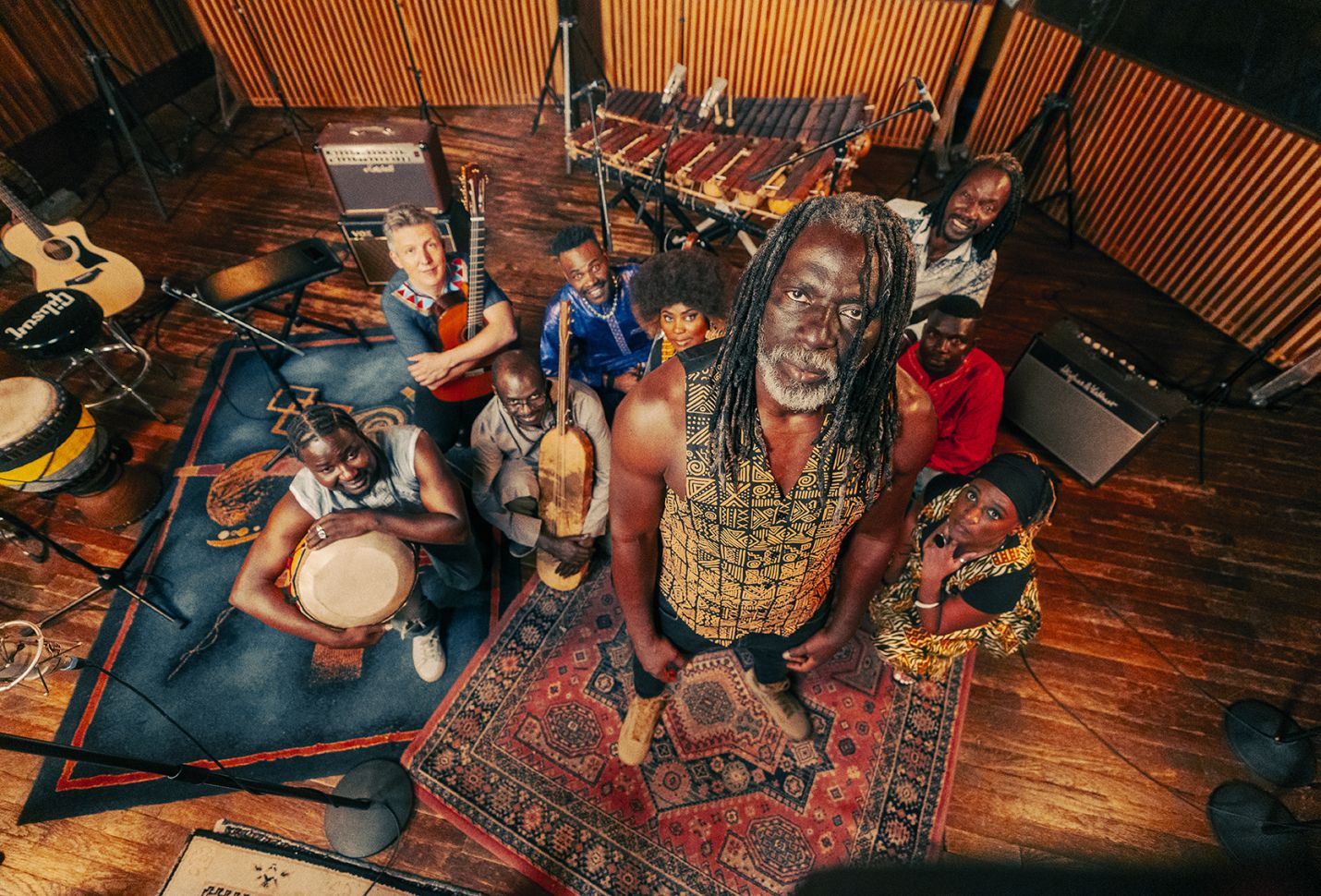
Nothing makes an impact like simple words do. No need for unnecessary frills or trimmings: «Ils ont partagé le monde, plus rien ne m’étonne. Ils ont partagé Africa sans nous consulter, ils s’étonnent que nous soyons désunis ! Une partie de l’empire mandingue se trouva chez les Wolofs, une partie de l’empire mossi se trouva dans le Ghana». (editor’s note: taken from the song “Plus rien de m’étonne”, See how they cut up the world, nothing surprises me anymore. They cut up Africa without asking us, and they wonder why we’re so divided! Part of the Mandinka empire ended up with the Wolof people, and part of the Mossi empire ended up in Ghana). Ever loyal to his Pan-African mindset underpinned by justice and speaking the truth about historical facts, Ivory Coast’s most celebrated reggae artist who wrote Plus rien de m’étonne back in 2004, returns here with a kora-laden acoustic version with French reggae sensation Naâman.
Always straight to the point, but with elegance and staying true to the African identity: such are the guiding principles of Acoustic, the sixteenth album by the native of Odienné, a town close to the Malian and Guinean borders. The mostly unplugged album, free of synthetic add-ons, focuses on the organic essence, the poetry and the many journeymen supporting Tiken’s voice along the way, to form a comforting cocoon in preparation for the battles ahead. The short spoken interludes, part of the web documentary Tiken Jah, descendant de Fakoly – produced by Pan African Music – remind us of Tiken’s life challenges and battles.
Acoustic’s fourteen tracks highlight a career spanning twenty-seven years, one that started with Mangercratie (1996) and was bookended by Braquage de pouvoir (2022), with the exclusive Arriver à rêver (editor’s note: Being able to dream in French) providing that extra breath of fresh air. Producer Jonathan Quarmby lends the hard-hitting album extra perspective by rooting it in the Great African sounds, putting aside the idiosyncrasies of traditional reggae, but staying short of shedding them altogether. Out with the heavy bass lines, the skank rhythms and snares; in with the guitars (Colin Laroche de Feline), n’goni (Andra Kouyate), balafon (Adama Dembele and Adama Bilorou Dembele), percussions (Tiemoko Kone), all enhanced by background vocals (Wendy Engone and Julie Negblé Remy), the kora (Cherif Soumano Mamadou), the soku violin and talking drums…






